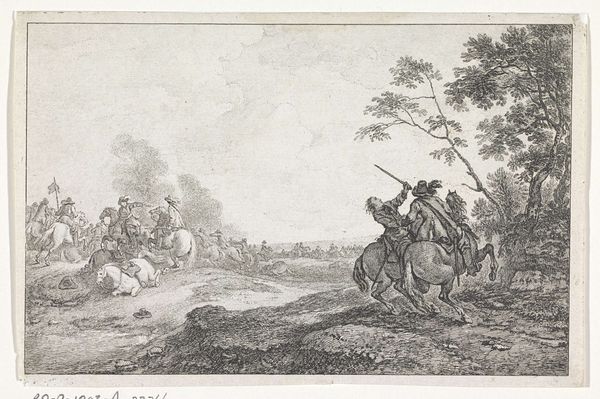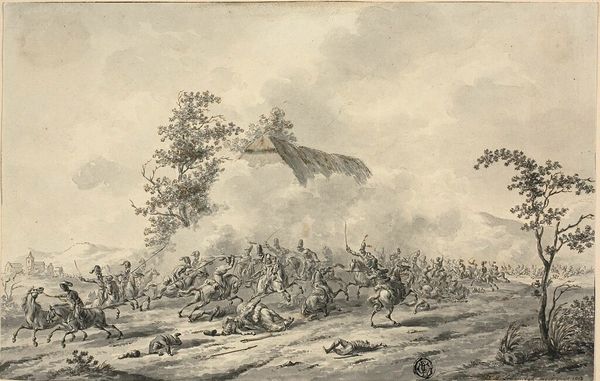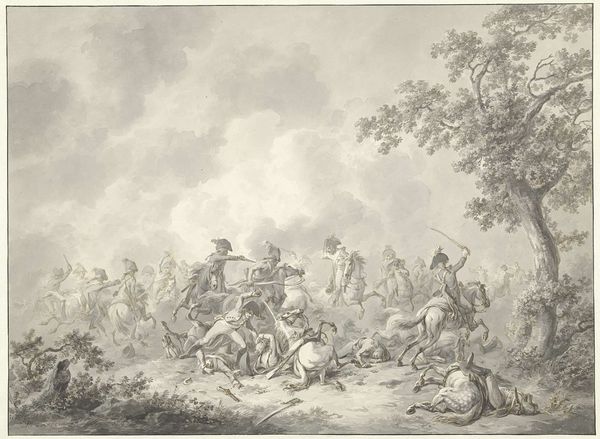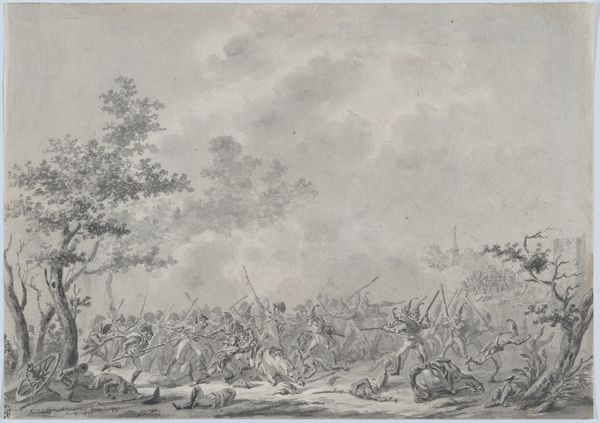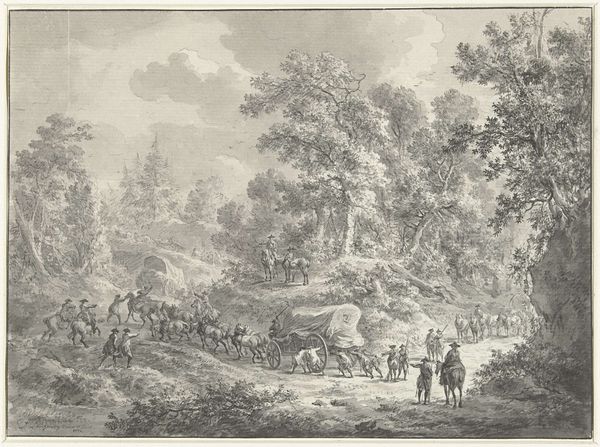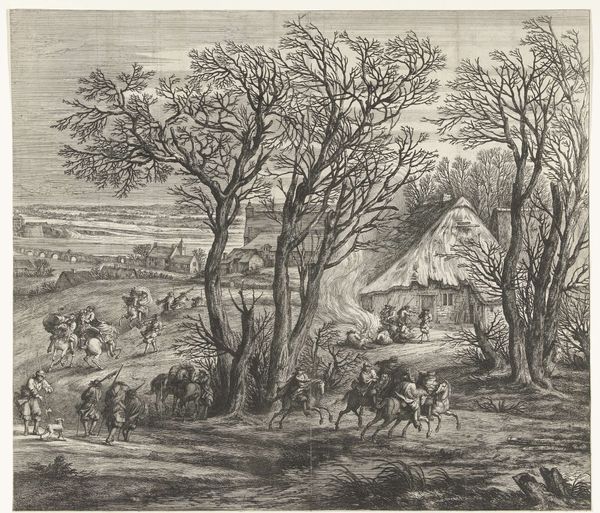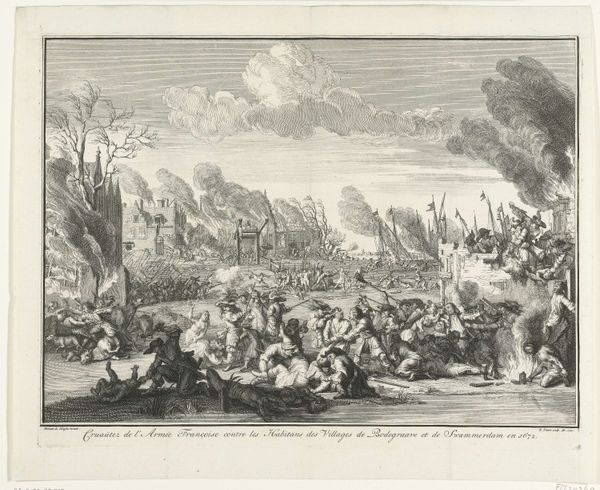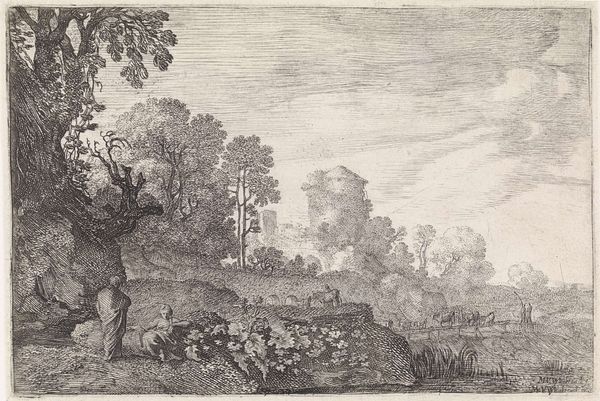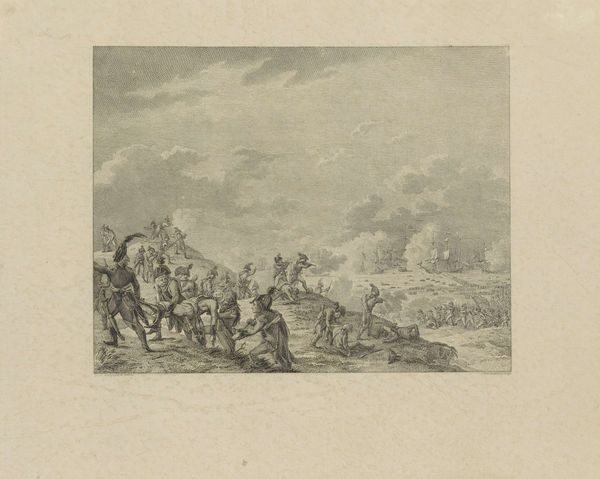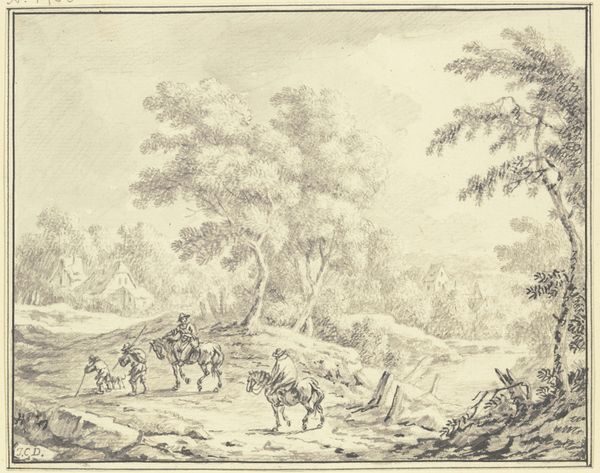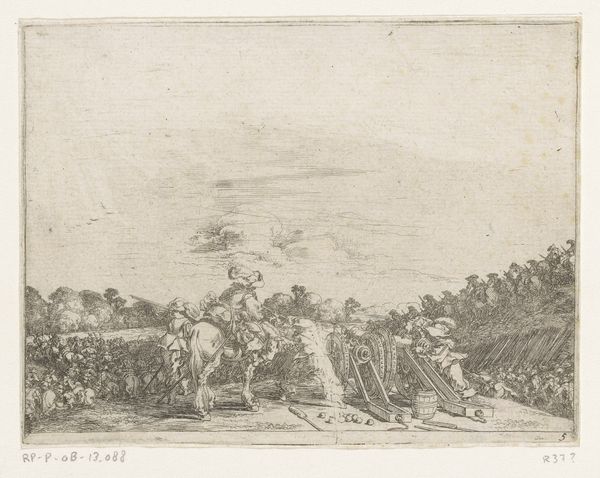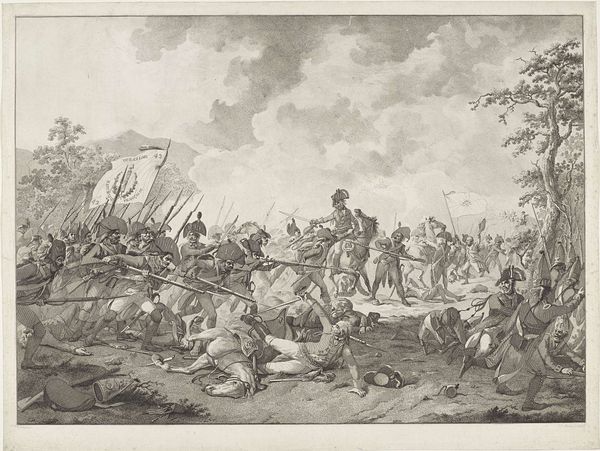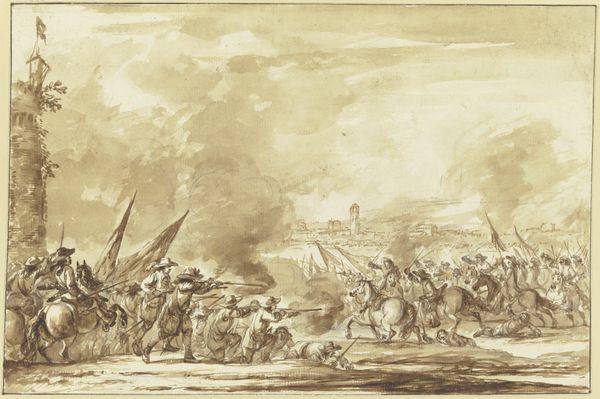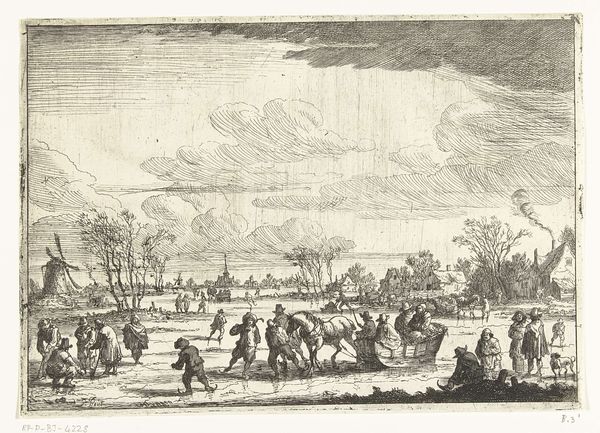
drawing, ink, pencil
#
drawing
#
narrative-art
#
pen sketch
#
pencil sketch
#
landscape
#
figuration
#
ink
#
romanticism
#
pencil
#
line
#
history-painting
Dimensions: height 140 mm, width 208 mm
Copyright: Rijks Museum: Open Domain
Curator: This is "Ruitergevecht," or "Cavalry Combat," a drawing crafted in 1805 by Dirk Langendijk. It resides here in the Rijksmuseum. Editor: My first impression is of organized chaos, that swirl of figures. And there's a somber feeling about it. Almost like watching something inevitable unfold. Curator: It is definitely not still life! Consider the layering here: pencil and ink create form and drama in a single space. Langendijk emphasizes action. But I wonder, at what cost to the individuals involved? Editor: I see recurring images of fallen riders, scattered limbs; symbols of sacrifice. War’s brutal undertones. This is Romanticism capturing struggle on an intimate level. Do you think that Langendijk wanted the scene to show violence, or honor? Curator: Honor might be a gloss for very grim economic and class conditions in a society constantly at war. The artist certainly makes visible a highly stratified social dynamic playing out on the battlefield, through both attire and weaponry, that point to hierarchies of military roles during times of war, while also hinting at a broader society in service of a conflict and military regime. Editor: Yes, these details certainly elevate the piece. These motifs contribute to the understanding, don’t they? Perhaps, rather than glorify, Langendijk gives us a stark observation about social machinery at war. The materials serve a symbolic function here: each mark adds a note to that emotional and cultural burden, connecting to shared feelings across eras. Curator: Exactly! And understanding the techniques of creating this narrative is critical; the layers of work give access to a layered narrative—we need to really dive into not only the material presence, but also understand it as made, by someone at some time in social circumstances which gave way to certain representational decisions. Editor: It truly makes you consider how powerful it can be when a single moment is turned into a lasting symbol. Thanks for adding layers to that understanding! Curator: Likewise! Examining that connection of historical events and art production really grounds it for me.
Comments
No comments
Be the first to comment and join the conversation on the ultimate creative platform.
